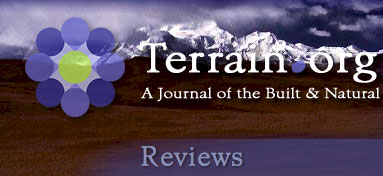
 |
|
|
A Certain Truth Simmons B. Buntin reviews On the Altar of Greece, poems by Donna J. Gelagotis Lee
In a way, On the Altar of Greece is like a good travel guide: it transforms reader into visitor and nearly into resident. It takes the visitor to the authentic places that few tourists find, places delightful yet still surprising, safe yet unexpected. If comparing the collection to a travel guide seems to trivialize the book and its poems, that’s not the intent. Rather, they provide real insight to the people and places of Greece because they are likewise authentic. Lee is a longtime resident of Greece, but not native. The narrators of her largely autobiographical poems don’t pretend to be Greek, yet neither do they deny their Greek heritage. In a word, they know. In “First Night in Athens”—which we don’t discover until midway through the book—Lee begins:
As the narrator melds into place, so do we. The end result?
Lee’s visceral and often sensual language creates a series of images that builds, throughout the collection, into a kind of movie that we can’t help but feel a part of and strongly connected to, even well after reading the final poem. The book is a well-crafted screenplay, then—introducing characters to enrich the story yet always further enriching the narrator. In “Mariánna Crocheting,” for example, Lee begins:
But the poems of On the Altar of Greece are not only about character and scene; they also incorporate metaphor and symbol in ways as deep (and often dark) as history. In “Readying for the Olive Harvest,” the most difficult job is one of balance, literally and figuratively:
And condition, it seems to me, may be the book’s central theme, for each poem rests delicately and purposefully in the gray area between cause and effect, between having and not having, between passion and frustration. Sometimes the poem gets us to that realization early on, as in “French Fries and Tzazíki,” in which the narrator finds “perfect balance” in “French fries and tzazíki / at the upstairs tavérna over the platía / by the sea.” And though the ending is playful, using “salivation” when “salvation” is what the mind’s eye first reads, ending becomes something else entirely in “Confession:”
If there is a weakness in On the Altar of Greece, it is in the “acts,” to continue the movie metaphor, or the lack thereof. Though there is always momentum and a connectedness because of the similar settings and tones of most poems, with a 69-poem collection I’d prefer sections that help, if even the slightest bit, to provide some direction or transition-point as I read through the book. Perhaps that is a fault on my part, that I’ve come to expect sections for longer (and these days, shorter) collections. Maybe that’s a result of collections with poems so dissimilar to each other that they require discernable sections. Certainly Lee’s book is one of the tighter sets of poems I’ve read, to agree with the latter possibility. And yet, I still think sections would help the book as a full entity. Sometimes the seams, the spaces between, are what hold us, momentarily, allowing us to catch our breath and consider a subset of poems as a whole before driving forward again. That speaks to the book as an entity, which is important, but doesn’t discount the quality and effectiveness of the poems themselves. To that end, the poems are right on, finding certain truth whether in Athens or a rural setting, among a circle of gossiping women or inside the mind of the narrator. Indeed, Donna J. Gelagotis Lee is an outstanding poet whose cross-cultural perspective lends to that truth, and On the Altar of Greece shines because of it. Read poetry by Donna J. Gelagotis Lee appearing in Issue No. 14, Issue No. 15, and Issue No. 18.
|
|
||||||||||||||||||||||||||||||||||||||||||||||||||||||||||||||